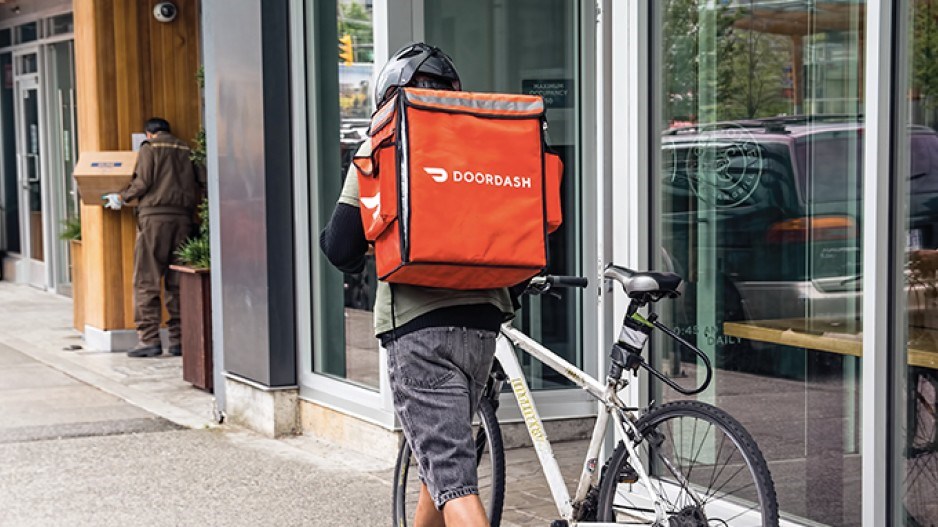The potential for visiting an office, picking up a pen to sign in and shaking hands with the first person to say hello looks decidedly iffy in a post-pandemic workplace.
“We think the days of visiting a location without following mandated health and safety precautions are going away or gone,” said Keith Metcalfe, CEO of Traction Guest Inc.
“Now everybody’s in the position of saying, ‘Those [days] are gone, now what do I do?’”
The Burnaby-based startup specializes in visitor management technology for companies like Netflix Inc. (Nasdaq:NFLX), and last year raised US$13 million in a Series A financing round.
With restrictions slowly easing and some workplaces reopening, Traction Guest this month unveiled new “contactless screening” technology.
The platform sends a link to visitors’ smartphones before they arrive at an office or manufacturing site with instructions on how to proceed.
Visitors use their smartphones to scan in at a company iPad without touching any surfaces, and they may be prompted with further instructions from there.
“When you come into a location, regardless of what it might be, there is now more than ever a need to have people sign in and sign out for record purposes,” Metcalfe said.
“However, people generally don’t want to be touching what other people have already touched.”
More broadly, as a result of the pandemic, expect technology to transform businesses previously reluctant to change, and accelerate trends for those already proving to be nimble, said Parisa Mahboubi, a senior policy analyst at the C.D. Howe Institute.
“With the beginning of the crisis and the impacts of the pandemic, we all realized that technology could help keep some jobs in place – basically any organizations and businesses that have been able to basically provide alternative work arrangements to shift from being in the workplace to being at home,” she said.
But Mahboubi added that the pandemic could result in a permanent shift in the labour market, requiring many workers to undergo retraining as, for example, more cashiers give way to automated checkout terminals.
“Yes, some jobs may disappear, but at the same time, new jobs will be created,” she said, adding government and business will need to invest in retraining many in the workforce following the pandemic.
Mahboubi said the impact will be felt deepest in the service sector, which has already seen a dramatic shift in online orders for everything from food delivery to curbside pickup for housewares.
But it’s unclear whether the agriculture is in a position right now to move away from its dependency on temporary foreign workers and invest heavily in automated processes, she added.
A March 2018 report from RBC Economics concluded four million young Canadians entering the workforce in the next 10 years are “unprepared” for sweeping changes to the workforce brought on by automation.
It may be a different story on the West Coast, however.
“Workers in British Columbia and Ontario face the lowest risk of disruption due to automation,” stated a separate 2018 study from the C.D. Howe Institute.
“Those two provinces also face a relatively low polarization of risk in the distribution of employment and a smaller fraction of employment in occupations that are likely automatable.”
The Toronto-based think tank’s report, Risk and Readiness: The Impact of Automation on Provincial Labour Markets, examined the composition of each provincial labour market based on factors such as basic skills, education and the proportion of jobs susceptible to automation. Jobs most vulnerable to technological change are those heavy on calculations and light on subtle human interactions, such as bookkeeping or assembly-line work.
Mark Thompson, a professor emeritus of industrial relations at the University of British Columbia’s Sauder School of Business, said in the past the economy expanded enough that workers such as telephone and elevator operators were able to find new careers when old jobs disappeared due to advances in technology.
“So now we’re in a situation where there have been labour shortages in some areas. I think people might transition successfully into some of these other areas of the economy,” he said.
“I don’t see the predictions of mass unemployment and armies of people being out of work – they haven’t proven out in the past, and I wouldn’t expect them to in the future. If the economy is expanding, there will be other jobs created, people will find new careers of one kind or another.” •




